Bronagh Fleming: ‘Volunteering as a dog fosterer has increased my happiness 100%.’
My Volunteer Story: Bronagh Fleming, dog fosterer
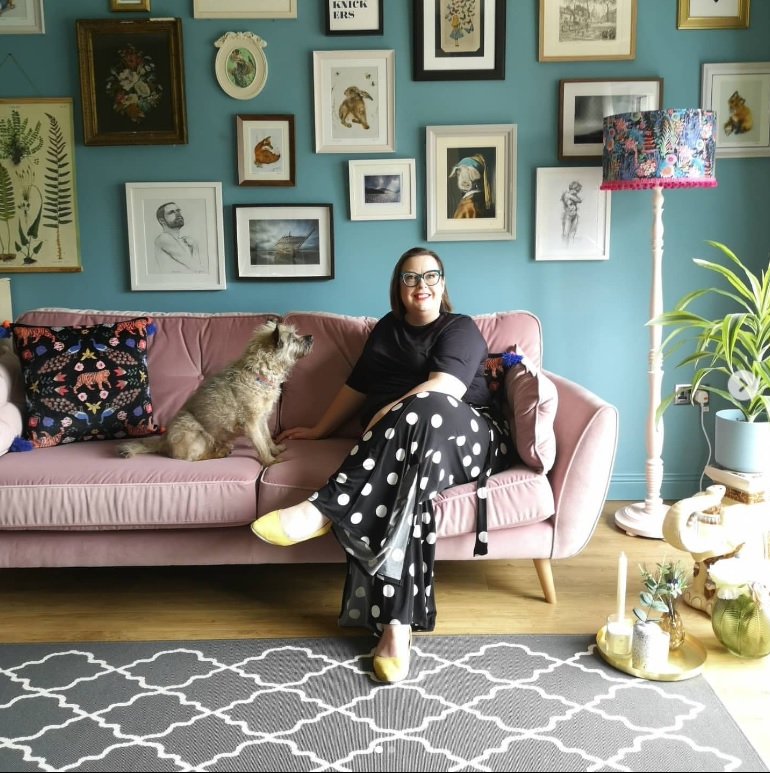

Bronagh Fleming: ‘Volunteering as a dog fosterer has increased my happiness 100%.’
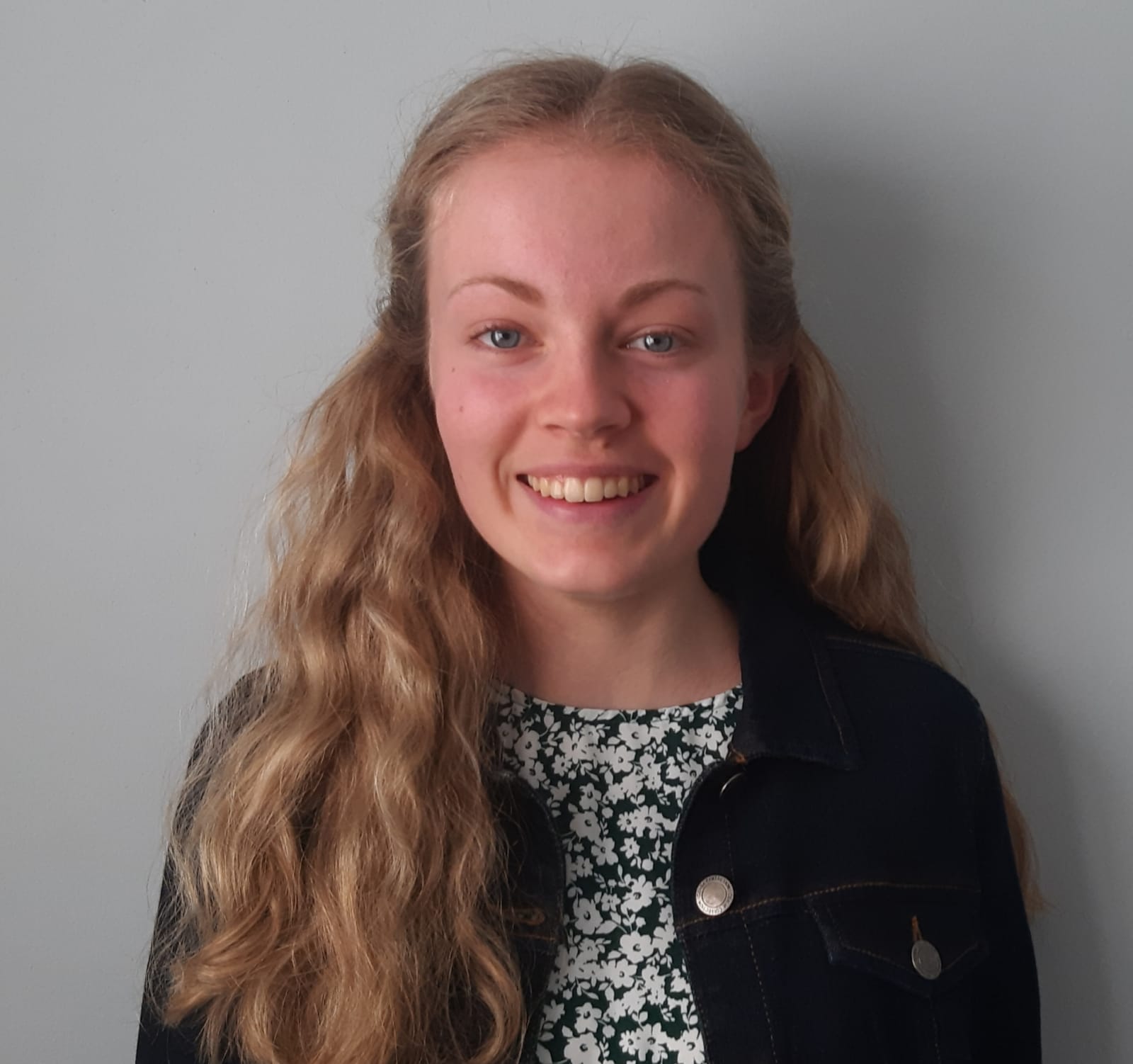
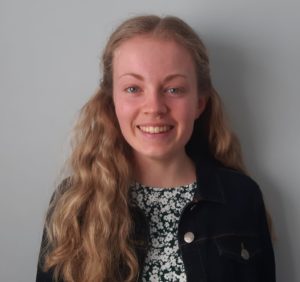 Orla Leahy is a student from Cork who is currently going for her Gaisce Gold Award. Here she tells us how COVID-19 has affected her, how she has adapted her Gaisce challenges and how she’s been volunteering from home.
Orla Leahy is a student from Cork who is currently going for her Gaisce Gold Award. Here she tells us how COVID-19 has affected her, how she has adapted her Gaisce challenges and how she’s been volunteering from home.
The toughest thing right now is not being able to see my friends and extended family, especially my grandparents. I would have visited my grandparents regularly. I think the biggest thing we all probably miss is our freedom. I had just passed my driving test before the current restrictions were put in place. I was extremely lucky to be able to do my test, and to pass, but it’s been a bit anticlimactic not being able to drive anywhere. It’s such a rite of passage to learn to drive in the first place. I was hoping to drive to the gym and swimming pool to undertake the Physical Recreation challenge area for Gaisce, but now I’m confined to doing all my Gaisce at home. You really have to get creative!
I’m currently studying for my Leaving Cert which is taking up a lot of time of course, but I’m making sure I’m taking lots of breaks. My family created two raised beds in the garden where we’re growing things like onions, courgettes and herbs. We’ve also built a greenhouse which has been very a very exciting project as we’ll be able to grow things from seed.
I’m making sure I keep up with other things I love too like my GAA skills. Before the outbreak, I used to train the local U12 girls football team, which I miss doing an awful lot.
I find doing Gaisce has been a welcome distraction as it’s something else to focus on other than the Leaving Cert and the current restrictions. It’s hard when you’re at home all the time to stay positive, but I’m finding working towards my Gold Award keeps me motivated and gives me something to look forward to. Gaisce for me is a way of promoting positive mental health and I think it’s bringing an air of normality to daily life which I welcome wholeheartedly!
I’ve had to change two of my Challenge Areas due to the current restrictions, my Community Involvement and my Physical Recreation. For my Community Involvement I was training the local U12 girls in Gaelic football, but now I’m knitting for the Innocent Big Knit for Age Action Ireland. My mom has been knitting too, so it’s something we can do together. My nana taught both of us how to knit which is nice as it brings her closer to us even though we can’t see each other.
I’ve had to change my Physical Recreation from gym work and swimming to Joe Wicks classes. They’re easy to follow along with and my family join in too which is good, because we’re not able to do our usual exercise.
Luckily, I’ve been able to keep up my Photography for my personal skill. I’ve been editing photos I’ve taken on my laptop, which is very relaxing and another way I can unwind these days.
Three friends and I had been planning our Gold Adventure Journey for this summer in the South of England. Unfortunately, it’s very unlikely that that will go ahead, but we’re adamant we make alternatives. It may be next year or going on an Adventure in Ireland instead, but having something to look forward to beyond the Leaving Cert and Covid 19 restrictions is of huge benefit to all of us.
Otherwise, I recommend that everyone tries to stick to a routine, I’m certainly finding the routine of Gaisce beneficial. Plan what you’re going to do for the week and try to stick to it as best you can.
If you want to learn more about Gaisce at Home, check it out here.
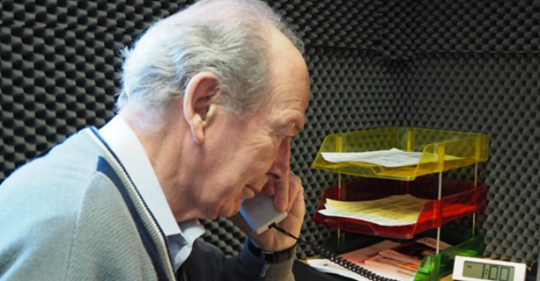
 Damian Leneghan is the Programme Manager with SeniorLine, a confidential listening service for older people provided by trained older volunteers. Here he tells us how COVID-19 has affected their service and how they have adapted their volunteer programme.
Damian Leneghan is the Programme Manager with SeniorLine, a confidential listening service for older people provided by trained older volunteers. Here he tells us how COVID-19 has affected their service and how they have adapted their volunteer programme.
Tell us a little bit about SeniorLine and how you engage volunteers generally.
Usually we have 178 SeniorLine volunteers, all older people themselves, who answer the support line in 3 hours shifts in one of our 3 Dublin locations. They answer calls from older people on a range of issues including: loneliness, bereavement, suicide, elder abuse and family conflict among other things. Each volunteer does one shift every 3 weeks and always work in pairs meaning that 2 volunteers are on duty at each centre at any time. Volunteers received 5 days of intensive training, have support materials with them on shift and always have the ongoing support of SeniorLine staff.
How has COVID-19 affected how you manage your volunteer programme?
The biggest impact on our programme has been the need for all of our volunteers to do their shifts from home. Luckily, we already had a ‘work from home’ system in place for holiday periods which allows us to use a platform to redirect calls to volunteers at home. Now we have had to move to using this system full time until we get back to normality. We offered the option to all of our volunteers and 109 of them signed up to volunteer from home. This has been brilliant as it means we can still deliver our service but it does involve more work and higher costs on our side.
Volunteers working from home naturally require more support. Volunteers now receive updates twice daily from the Programme Manager via text. It means we can provide that extra support and keep the lines of communication open, although the use of a bulk testing service has increased costs considerably.
How have your volunteers handled the change?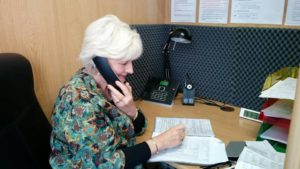
One of the biggest changes from the volunteers’ perspective has been the loss of the social side of volunteering and the support that volunteers provide each other. However, all of our older volunteers have been amazing! Although some were apprehensive and there were a few tech teething errors, everything has been running relatively smoothly. We call each volunteer after their shift which gives them great support – according to them! Our volunteers are themselves older people – the vulnerable group, cocooning, having shopping delivered to their homes, isolated and so on– and yet they are offering their time and experience to their peers – it’s great!
What advice would you give a volunteer manager who has never engaged volunteers virtually/from home?
The most important thing to remember is to keep connected. Give volunteers extra support, call them after their shift, have regular check ins. Never assume all is ok – always ask how they are. It’s also vital make sure volunteers are very clear about their boundaries when at home – their safety and security is priority. And as always, preparation is key. Do a risk assessment and identify how volunteering from home is different than in an office and make it as supported an environment as possible.

Emma Barnes is the Training and Recruitment Manager with Aware, a national charity that provides support and education for those experiencing low mood, anxiety, depression or bipolar disorder. Here she tells us about managing a team of volunteers across four services and how they have adapted to COVID-19.
Tell us a little bit about Aware and how you engage volunteers generally.
Aware is a national charity that supports people experiencing low mood, anxiety, depression or bipolar disorder. We have four services supported by volunteers; a support line, local support groups, a support email, and the Life Skills Online programme. The latter two services are delivered virtually by volunteers although in person training still takes place before volunteers take up their role. The support helpline is delivered from our offices in Dublin 4 while local support groups take place around the country.
How have you adapted your volunteer programme since the onset of COVID-19?
We were actually in the middle of training a new intake of volunteers for our Life Skills Online programme and our support helpline when the restrictions began. We had to adapt very quickly and within days we had moved the training online. As we had a big group of volunteers, we split them into smaller groups of 10/15 volunteers and completed the training through Zoom. We are lucky that given the nature of our roles, our volunteers are quite tech savvy so most of them adapted quite quickly.
We have changed the helpline to work through an app on volunteers’ mobile phones – all secure and encrypted – so they can take calls during their shift while at home. We have made the importance of shifts very clear – if a volunteer is on for a three hour shift then they finish when the three hours is up. When you’re fulfilling your role at home, the lines between ‘on’ and ‘off’ can become blurred so we have been very clear about maintaing boundaries.
Have you faced any challenges adapting your volunteer programme?
For some volunteers, particularly those who don’t typically deliver our online services, technology has been a challenge. In these cases, we offered extra support to help the transition but in some cases the volunteers felt it was best to wait until things are back to normal to continue their role. This is completely fine and we have engaged these volunteers in other ways by asking them to spread the word about our services online and by word of mouth.
Another challenge has been to ensure we are looking after our volunteers’ mental health. As a society, we are all going through something quite difficult and unprecedented so it’s critical we are minding the mental health of our volunteers as well as our service users.
We have created a ‘buddy system’ whereby a more experienced volunteer will check in with a volunteer at the end of their shift to see how they are, how they got on and if there were any challenges. This is really important as one of the most enjoyable aspects of volunteering for many is the social side where they make connections with other people – this doesn’t replace that but ensures the volunteer feels supported and connected.
Do you have any advice for anyone trying to manage their volunteer programme remotely?
Communication is key. There are lots of different ways to engage volunteers remotely but it’s vital to be clear about what you’re asking them to do and how they’ll be supported throughout the process. Ensure they’re comfortable with change but if they’re not, make sure they know it’s ok to opt out. And that they there is a place for them when everything returns to normal.
Be clear about expectations and boundaries. Make sure volunteers don’t take on too much and encourage them to practice self care. This is a trying time for everyone and people are so willing to help in any way they can. As volunteer managers we have a really unique job in harnessing that spirit, engaging volunteers effectively and making sure they are supported.
If you’d like to volunteer with Aware, you can learn more here. If you’re looking for support from Aware, you can learn more here.
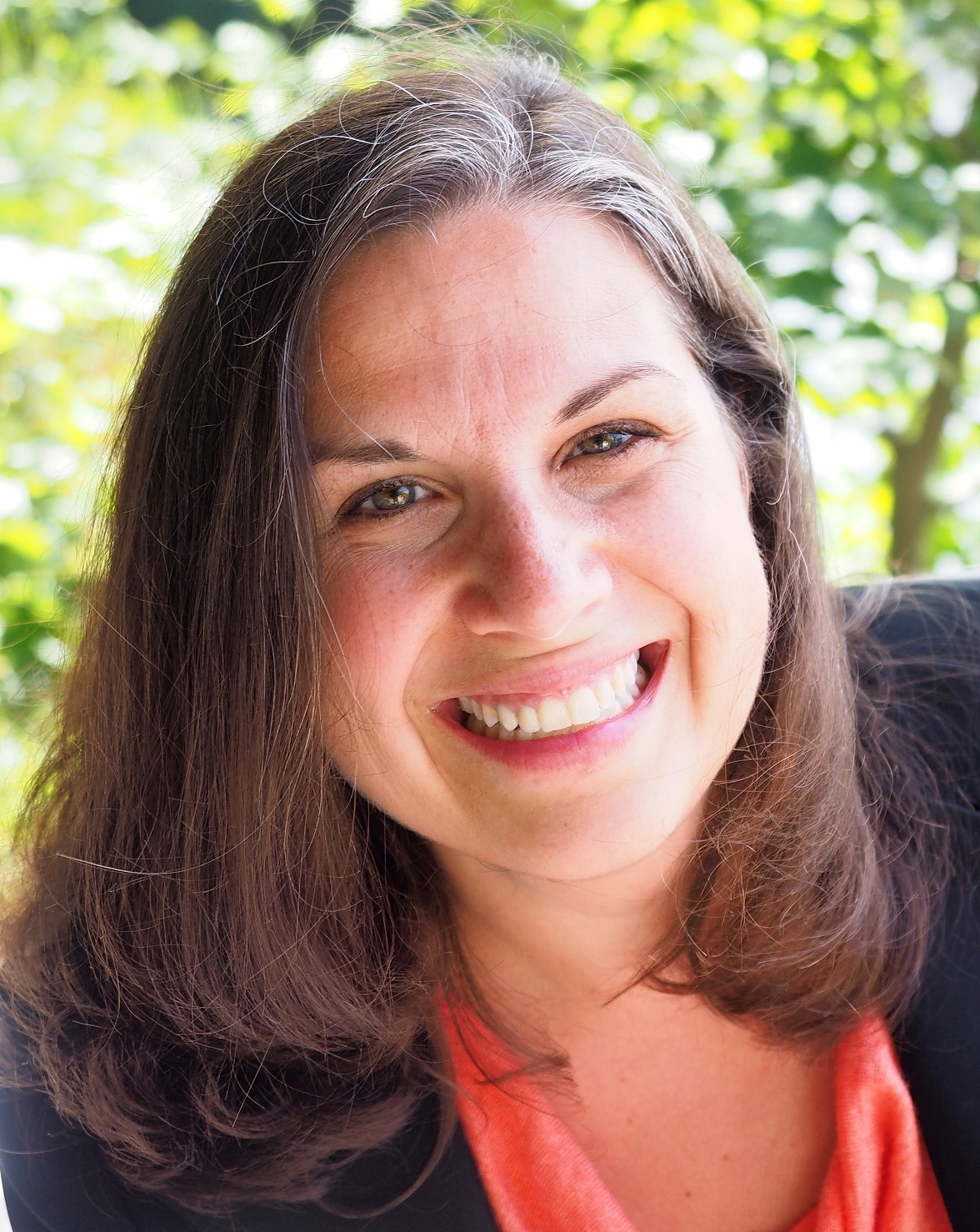

Dr. Maria Gallo is an alumni and philanthropy researcher with KITE- Keep in Touch Education and is a Research Fellow with the Community Knowledge Initiative of the Institute of Lifecourse and Society at NUI Galway. As a parent of small children she was keen to give back in a way that fit around her professional and family life. Here she tells us all about her unique volunteer role.
Virtually no options that worked for me
I started volunteering as a child. Like many, I didn’t particularly understand it as volunteering, it was simply a collective community action to clean up the park or help at local events. As a young adult, my volunteering continued: I participated on committees and boards—in my community, with my alma mater—and it became a natural part of my life. As life changes, as I discovered, so do volunteering experiences.
Now as a parent of young children, there are ample opportunities to volunteer: at the school, with sports teams and participating on boards and committees. Nothing really spoke to me as something that I could do with the limited time I have juggling work, my research and especially my family life. This is especially true since much of the volunteering is at night, which conflicts with kids’ bedtimes or during the day which is difficult with work. Does this sound familiar?
Finding a solution

I stumbled on a brilliant solution: virtual volunteering. I hadn’t even recognised it as volunteering or virtual for that matter, it was simply an activity I could immerse myself in as my time permits: 10 minutes here, 15 minutes there. Since autumn 2018, I am a member of the Parents’ Jury for the Irish Heart Foundation’s campaign Stop Targeting Kids. This campaign focuses specifically on raising awareness to the extent that the junk food and drink companies target children, which studies show can lead to lifelong unhealthy food choices and childhood obsesity. The Stop Targeting Kids campaign is calling the government to ban junk food and drink advertising to children, especially extending the broadcasting ban to 9pm.
As a member of the Parents’ Jury, I review marketing and advertisements, including those on social media and online advertising, and write complaints to the Advertising Standards Authority of Ireland. Irish food writer and bestselling cookbook author Susan Jane White, an advocate for baking with no refined sugar, is also a member of this Parents’ Jury, so I feel I am in good company.
How it works
I typically give about one to two hours per month to this virtual volunteering role. I have written complaints and promoted this campaign to fellow parents in the region. This role has really heightened my awareness of the ways that a voluntary code for food and drink marketing is not working within the junk food industry: so many of the advertisements use songs, messages and images that appeal to children. This volunteering role has sharpened my senses to this advertising and it has allowed me to talk to my children about becoming critical and discerning consumers.
 How to get involved
How to get involved
Just as my parents were active volunteers when I was a child, I want to model active citizenship to my own kids, which I believe includes giving back to the community. This virtual volunteering experience has enabled me to give back in a flexible, impactful and enjoyable way.
For anyone who wants more information on the Parents Jury or to join the campaign as a virtual volunteer, contact Helena O’Donnell of the Irish Heart Foundation: [email protected] or visit: https://irishheart.ie/campaigns/stop-targeting-kids/ #stoptargetingkids
Maria was instrumental in creating the new part-time Postgraduate Certificate in Volunteer Management and Leadership, for volunteer managers and those with an interest in volunteer management. This programme accredited by NUI Galway and delivered within the Centre for Lifelong Learning at St Angela’s College, Sligo.